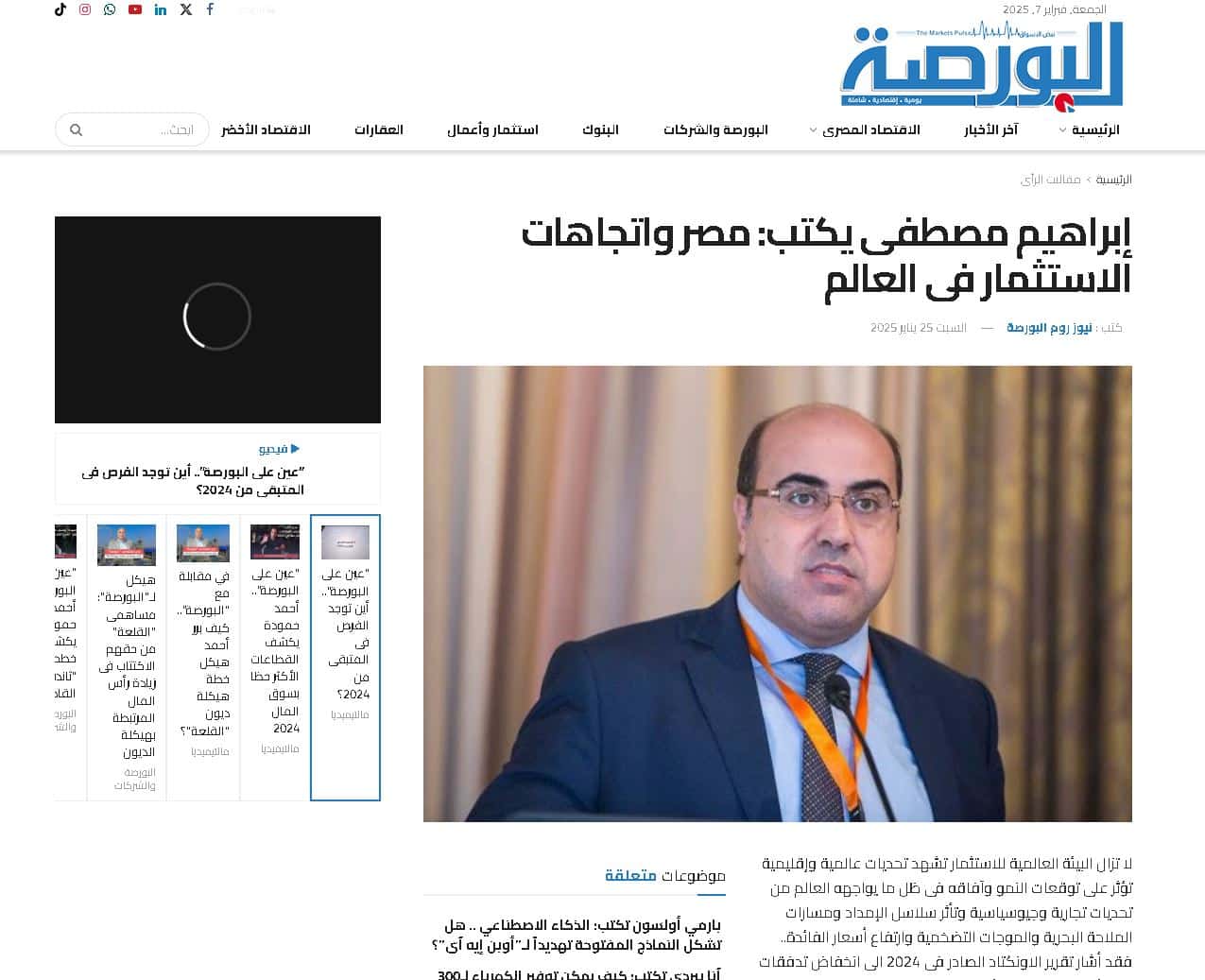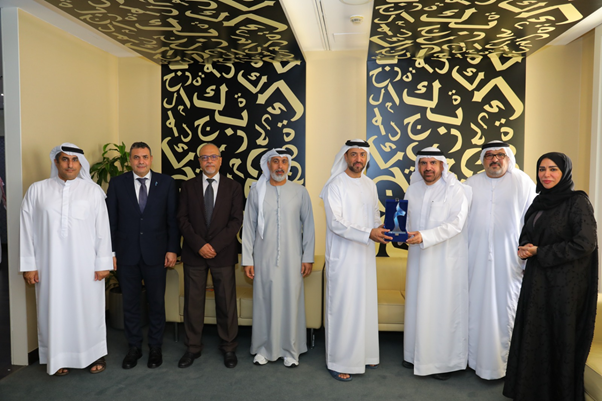Dr. Ibrahim Mustafa
Chairman of the Investment Committee
The global investment environment continues to witness global and regional challenges that affect growth expectations and prospects in light of the world’s trade and geopolitical challenges, the impact on supply chains and maritime navigation routes, inflationary waves and rising interest rates.
The UNCTAD report issued in 2024 indicated a 10% decrease in global foreign direct investment flows in 2023 compared to 2022. It pointed out the importance of industrial investment as a bright spot after the challenges brought by the global crises resulting from the Corona crisis (Covid-19) in 2020 and the resulting decline in global production, global trade and investment, and the impact on supply chains, for regional wars and geopolitical tensions to come to cast their shadows, whether the Russian-Ukrainian war in 2022 and the war in Gaza at the end of 2023 and its continuation in 2024 to affect the movement of trade and shipping across the seas, as well as the rise in energy prices (specifically natural gas) and food globally, regionally and locally, achieving major inflationary waves that spread to the rest of the commodities, including the rise in the prices of metals – such as gold – globally.
The report indicated that the digital transformation of governments has witnessed great interest in the investment environment in terms of entry procedures, licenses and customs, as they are key areas that affect the investment and trade climate, which focuses on four main axes (facilitation – incentives – promotion – and liberalization of the trade and investment environment) to make room for the growth of the private sector and encourage local and foreign investment, and to emphasize interest in financing infrastructure, energy, sustainable development and digital transformation projects and the return of interest in industrial investment and services.
Away from the UNCTAD report, cryptocurrencies have received a share of global attention and have witnessed leaps in the volume of dealings with them, as global events have led to a greater reliance on cryptocurrencies to finance trade deals for countries suffering from trade and economic sanctions. In light of the shaking of the global financial system and talk of practical alternatives, the trend towards cryptocurrencies has grown significantly, which has had an impact on a number of currencies, as the price of Bitcoin globally has reached more than $109 in light of the results of the US elections globally, and there are expectations of its future increases, especially after President Trump’s return to power and what followed from launching his own cryptocurrency as well as his wife launching her own cryptocurrency; and with his use of a team of businessmen such as Elon Musk and others who give momentum and increasing use to these currencies on their digital platforms.
However, this does not prevent President Trump’s statements from raising concerns about the global economy regarding trade and investment; specifically his statements regarding imposing customs duties on China, the European Federation and Mexico, his efforts to impose control over the Panama Canal and annex Canada, and his urging of Arab countries to pump large investments in the United States, where he asked the Kingdom of Saudi Arabia to reach a trillion dollars in directed investments after initially requesting $450 billion between investments and imports of American products to visit Saudi Arabia as a first destination, and the Crown Prince’s statement about his intention to pump $600 billion in investments into the American market after that statement. And before that, the Emirati company Damac visited America and met Trump and intended to pump $20 billion in investments into the American market.
This is in addition to his intervention to stop the war in Gaza and his current efforts to end the Russian-Ukrainian war, lowering prices, strengthening the use of the dollar, and imposing sanctions on those who abandon the use of the dollar. His signing of decisions to withdraw from the World Health Organization and the climate agreement. His interest in traditional energy, oil and gas, and his efforts to influence OPEC countries.
All these trends will have significant (negative and positive) impacts on the movement of trade and investment in the world, sectorally and geographically. The continued imposition of customs duties on China will intensify the movements of China and its companies to invest abroad in Southeast Asia, Africa and the Middle East, in search of a new umbrella to access the American and European markets. Here, Egypt’s chances of attracting more Chinese companies will increase due to its trade agreements with those target markets, given its proximity to those markets, the competitiveness of production costs and the currency exchange rate; the impact of which has become clear since the end of Trump’s first term and after the end of the Corona crisis.
There is no doubt that the end of the war in Gaza will restore maritime traffic to normal in the Suez Canal, one of Egypt’s main dollar resources, whose traffic and thus its revenues have decreased by about 60-70% due to the war; and services in Egyptian ports on the Red Sea have been disrupted, as well as some company investments in those ports have been postponed. It was planned for the alliance of Hutchinson (Hong Kong), COSCO (China) and CMA (France) to operate the dock allocated to it in Sokhna Port in 2024, and to officially open Sokhna Port after its development in the same year as well. It also began to raise the efficiency of Adabiya Port, which is the main ports of the Sokhna Industrial Zone under the umbrella of the Suez Canal Economic Zone, which I see as a distinguished regional center for trade and investment and a gateway to Africa and the Middle East, given its presence on the Suez Canal, which is a strategic link between the continents (the heart of the world).
I believe that the year 2025 will be a very volatile year with many challenges and investment and commercial opportunities. The biggest winner will be the one who reads the scene well and is good at reducing the impact of challenges through his commercial and investment movements, and exploits commercial and investment opportunities. Egypt will be the focus of attention and must exploit this to compensate for its losses from the past period due to regional and global challenges.












